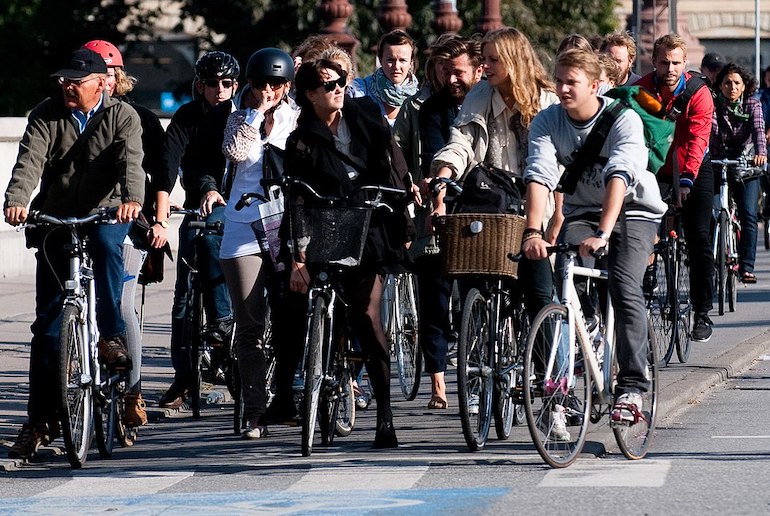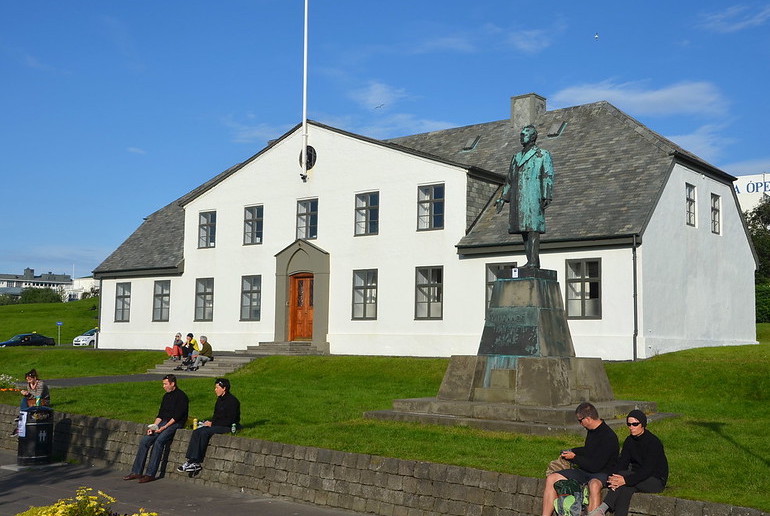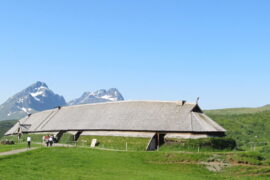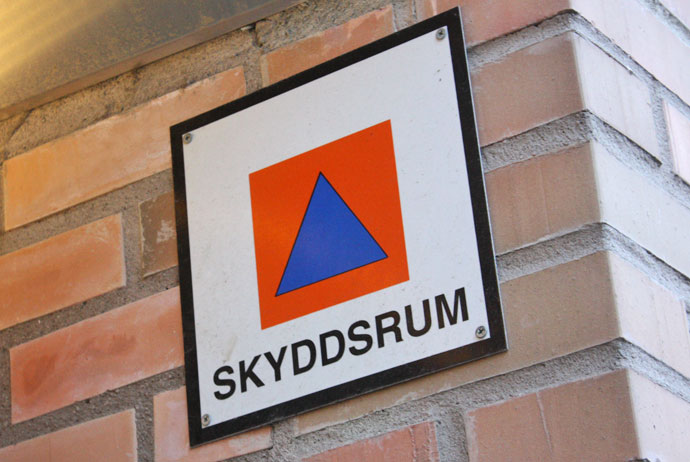Have you ever heard of the term Jantelagen? If you haven’t, you’re not alone – but if you live in a Nordic country or have spent some time there, chances are you’ve encountered its influence.

The word Jantelagen, which translates to “the Law of Jante,” is a concept that encourages collective unity while discouraging individualism.
This ideology advocates for modesty, equality and social harmony as core values.
Let’s dig deeper into what Jantelagen really means, and explore its relevance in the Scandinavian countries.
What is Jantelagen?
Jantelagen (pronounced jan-teh-lah-gen) is a concept that originated in Scandinavia, particularly in Denmark and Sweden. It is a set of unwritten rules or social norms that promote modesty and equality.
Jantelagen’s significance in Scandinavian culture lies in the emphasis it places on equality and community over individual success.
It is believed that this cultural concept fosters a sense of togetherness and minimizes conflict, leading to a more harmonious society.
Jantelagen is why people from Scandinavia tend to have a relatively flat social hierarchy.
In these societies, people typically avoid drawing attention to their accomplishments or individual strengths, instead emphasizing the importance of working together for the greater good.
Some sources also credit Jantelagen with community survival and a sense of cohesiveness.
Where does Jantelagen come from?
The term Jantelagen comes from the novel “A Fugitive Crosses His Tracks” (En flyktning krysser sitt spor) written by Aksel Sandemose in 1933.

The novel is set in the fictional town of Jante in Denmark, which Sandemose depicts as a tight-knit community that prizes conformity and adherence to group norms.
Although the novel was a work of fiction, its themes resonated with readers all over Scandinavia, which is why Jantelagen quickly gained popularity as a term to describe the shared values and societal norms of the Scandinavian people.
The ten rules of Jantelagen
The ten rules of Jantelagen are:
- You’re not to think you are anything special.
- You’re not to think you are as good as we are.
- You’re not to think you are smarter than we are.
- You’re not to imagine yourself better than we are.
- You’re not to think you know more than we do.
- You’re not to think you are more important than we are.
- You’re not to think you are good at anything.
- You’re not to laugh at us.
- You’re not to think anyone cares about you.
- You’re not to think you can teach us anything.
Perhaps you noticed a common theme. The common theme in the ten rules of Jantelagen is that they emphasize the value of the collective over the individual.
The rules aim to prevent anyone from thinking they are better than others or more important.
How important is Jantelagen, culturally?
Some would argue that Jantelagen is a big deal in Scandinavia, especially with the older generations. It’s a concept that’s deeply ingrained in the culture and influences everything from politics to business.
When it comes to work culture, Jantelagen encourages everyone to work together. Therefore, teamwork and collaboration are key.
There’s less emphasis on individual achievement and more focus on group success.
In everyday social interactions, people tend to be less egotistic and boastful. It’s all about fitting in and being part of a larger community.
The whole point is to promote equality, which is a big part of Scandinavian values.
So yeah, Jantelagen is kind of a big deal, and it’s definitely a unique aspect of Scandinavian culture that sets it apart from other places in the world!
Jantelagen in other Nordic countries
So, is Jantelagen practised in Norway, Denmark, Finland and Iceland? Well, yes is it, though it varies slightly from country to country.

While Jantelagen exists in most Scandinavian countries, the concept can differ in interpretation and emphasis depending on the specific country. And the Jantelagen pronunciation differs too.
In Denmark, it’s known as the “Jantelov”; in Norway, it’s “Janteloven”; in Finland, it’s “Jantelaki”; and in Iceland, it’s “Janteslóðin”.
While there are some variations, the core values of humility, equality and the needs of community are shared across the region.
However, each country puts its own spin on the concept. For example, in Denmark it may be viewed more positively, while in Iceland the idea is met with more skepticism.
Norway may add a bit of humour, while Finland tends to emphasize individual rights more than the others.
Criticisms of Jantelagen
Jantelagen might sound like a friendly reminder to stay humble, but it doesn’t come without its critics.
While the concept is often praised for promoting equality, it has also been blamed for stifling individuality, creativity and ambition.
Another concern is the potential negative impact on mental health and self-esteem. Jantelagen’s emphasis on modesty and not thinking oneself better than others can lead to feelings of inadequacy or self-doubt.
In modern Scandinavian society, there is ongoing discussion around the relevance and applicability of Jantelagen.
Some argue that it is an outdated concept that no longer serves a useful purpose, while others see it as an important part of the region’s cultural identity.
Do other countries have anything like Jantelagen?
As we’ve explored, Jantelagen is a uniquely Scandinavian concept that emphasizes the importance of humility and egalitarianism. But other countries have their own cultural values that share similar ideas.
In Australia and New Zealand, there’s a concept known as “tall poppy syndrome”. This refers to the tendency to criticize and cut down people who are perceived as becoming too successful or “uppity”.
It’s similar to Jantelagen in that it discourages people from standing out too much or becoming too proud of their accomplishments.
When it comes to the international perception of Scandinavia, Jantelagen can play a big role.
For example, Scandinavia is sometimes perceived as a region of reserved and unassuming people. Perhaps Jantelagen may have something to do with that perception!
In contrast to the individualistic cultures often found in Western Europe and the US, Jantelagen emphasizes humility and a group mentality.
This can sometimes be seen as a refreshing counterpoint to the “me first” mentality that dominates in other parts of the world.
Lessons from Jantelagen
Despite its criticisms, there are some positive lessons we can learn from Jantelagen. The emphasis on community and cooperation is something we can all benefit from, regardless of where we come from.
Modesty can be a refreshing trait in a world that often rewards arrogance and self-promotion.
Applying these values in personal and professional settings could lead to healthier relationships and a more productive work environment.
Incorporating some aspects of Jantelagen into our lives could be a valuable way to create a more balanced and fulfilling way of life.
Why Jantelagen is still important
We hope we’ve shed some light on the fascinating concept of Jantelagen and how it continues to influence Scandinavian culture and beyond. But is it still important today?
Well, even though Jantelagen can be seen as limiting individual ambition and creativity, it also promotes values like community, cooperation and modesty.
In a world where individualism often reigns supreme, perhaps we could all benefit from a little more Jantelagen in our lives.
So, we encourage you to take a moment and reflect on your own life. Do you sometimes feel pressured to constantly promote yourself and stand out from the crowd?
Or do you wish for a stronger sense of community and cooperation in your personal and professional relationships?
Finally, we want to hear from you! Do you have any thoughts or experiences with Jantelagen or similar cultural concepts?
Please share in the comments section below. Let’s keep the conversation going!
See also:
What is Stockholm Syndrome?
What is Helsinki Syndrome?
Is Denmark socialist?
Is Norway a socialist country?









